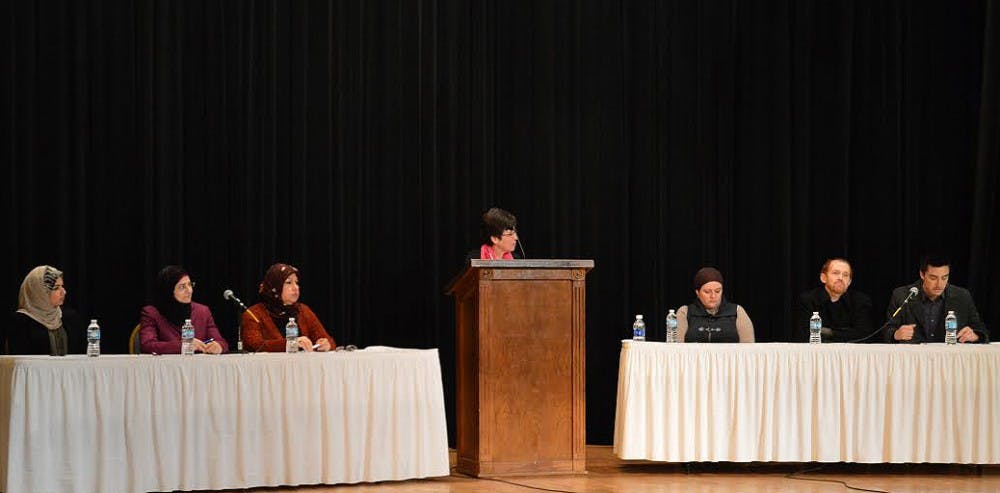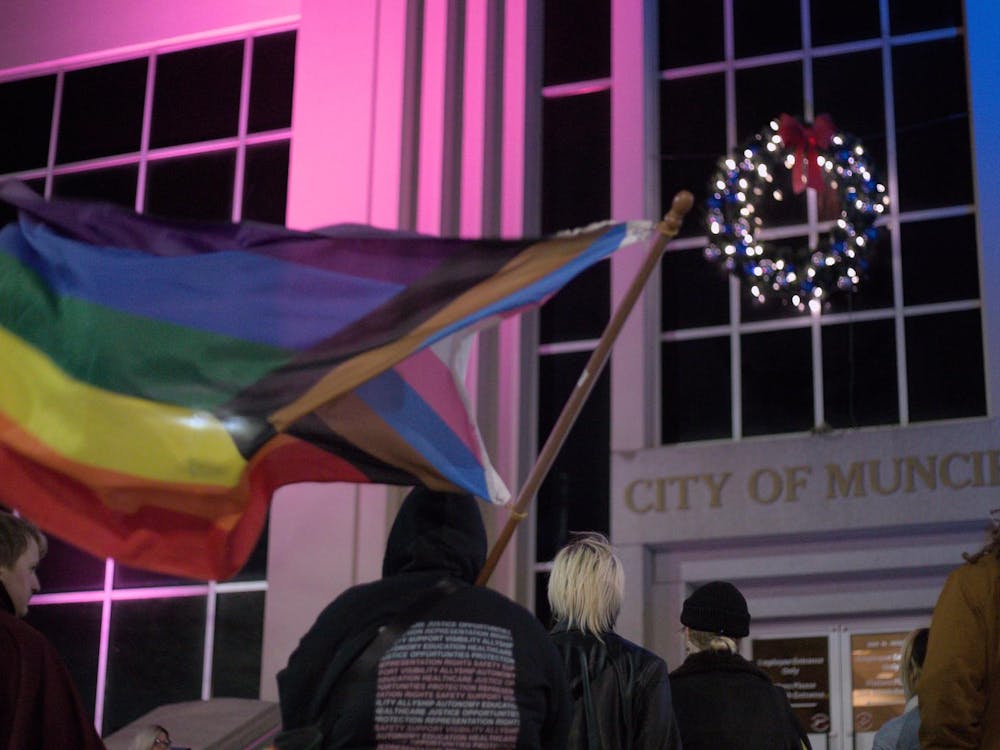Local Muslim leaders and Ball State students hosted a panel discussion to educate the public about the Islamic culture and Muslim religion on Jan. 12 at Cornerstone Center for the Arts.
The panel, "Peace through Allegiance,” was hosted as the January meeting for Reconciliation Achieved through Community Engagement (R.A.C.E.) Muncie in partnership with the Islamic Center of Muncie and Cornerstone.
“Our mission is to bring people together from all these different faiths, ethnicities, cultures and backgrounds to interact, listen and learn from each other,” said Jason Donati, organizer of the event through R.A.C.E. Muncie. “In America, currently there is the climate of fear and misinformation. It’s things like Islamophobia, where people are fearing other people, and I think that one of the easiest ways to combat those issues is to meet new people. That’s why we are here. We are here to show support and welcoming in community.”
Associate professor of religious studies Elizabeth Agnew led the discussion, starting the conversation by defining Islam and Muslim. The conversation was then in control of the audience, who submitted questions to the panelist.
How do you compare the significance of Muhammad and Jesus according to your faith? What are the primary differences between Islam and Christianity?
“For us for Muslims, we believe Jesus was a prophet. All prophets were human beings and equal. You can not say that prophet Jesus is greater than prophet Muhammad or prophet Muhammad was greater than prophet Jesus. We have to respect all prophets,” said Muhammed Maqbool, associate professor of physics and astronomy and president of the Islamic Center of Muncie. “We both believe in following God. In simple terms, the major differences between Christianity and Islam is that we do not believe that Jesus is the son of God and we do not believe that he was crucified.”
What is the meaning behind the hijab and what does it stand for?
“It has a lot of meaning to a lot of people, so it doesn’t mean the same thing to me as it might to someone else," said Noor Ayesha, a junior marketing major and Muslim Student Association president. "I started wearing the hijab in seventh grade when I started learning about it, and I fell in love with it. What I mean by saying I feel in love with it is because it is a direct connection to my faith. Wherever I walk, wherever I go, it is a constant reminder that I am Muslim and my actions reflect that. It’s a way of disciplining myself. Wearing the hijab, to me, is having a very personal connection to myself and my God.”
“I actually didn’t wear a head scarf all my life even though I grew up in Jordan," said Neda Arafat, who was born in the U.S., but grew up in Jordan. "My mother was a Christian and never felt pressured to wear one. So it was never really that engraved in me. But then when I came to the States and I was working in a library right after I graduated from Purdue, I was having a bit of a crisis or issue. I don’t look dark like a lot of other middle-easterners, and when you are in an American community and you don’t look like you stand out, people treat you like you are part of the community because you look like you are. I had male coworkers making passes at me, in a respectful way, but they didn’t realize that was against my culture and I wasn’t really allowed to date. Or people would come up and compliment how I look, which was nice but for me that was an insult on my character because I wasn’t supposed to be judged on what I looked like, I was supposed to be judged on my morals. That was hard for me to navigate who I was.”
How are you experiencing and feeling with life today?
“With what’s going on today, we think of [presidential candidate Donald] Trump. In the beginning with all that Trump was saying, I wasn’t really paying attention, but then when it wouldn’t stop popping up everywhere and I actually read and listened to what he was saying, I was shocked,” Ayesha said. “It is really so dangerous when someone with access to that much education and is so aware of the world and great in their business is also ignorant. That is a dangerous combination. He hones in on people’s fears and capitalizes that and manipulates people. Personally, it's upsetting, and there is not much I can do personally. All we can really do is just come together.”
“I have never personally been attacked or discriminated against here in Muncie. As a professor, I am always respected by my students,” said Ayesha Sadaf, assistant professor of educational technology. “But there are times where I’ll go places and people will look at me, but I don’t take it as anything personal. I’m just different from what they are, and people notice that. Another thing, too, I’ve realized is some people might be scared to ask questions about who I am, but I want to answer those questions, and I like having those conversations.”





